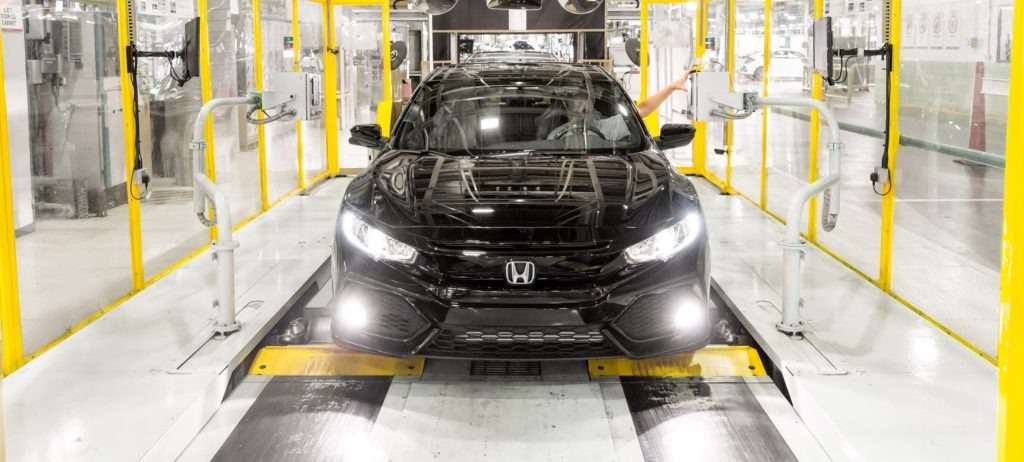Honda’s UK production pause a sign of things to come?
11 December 2020

11 December 2020
On Wednesday (9 December), Honda confirmed its Swindon factory in the UK, where it makes the Civic, would pause production due to transport-related parts delays. The carmaker has since confirmed it will not be re-opening the plant until the beginning of next week. Honda confirmed with to Autovista Group Daily Brief that: ′the situation is currently being monitored with a view to re-start production on Monday 14 December.’
With manufacturers dependent on ′just-in-time’ supply chains, mounting disruption and delays at UK ports are taking a serious toll. In the wake of COVID-19, these processes had already taken a beating, as parts suppliers and carmakers alike struggled to deal with reduced production capacity and lockdown-induced shutdowns. But with Brexit just weeks away, this could only be the start of a long logistical nightmare for UK-based factories.
Broken supply chains
The temporary pause in production at Honda’s Swindon plant is a exemplifies how manufacturers rely upon ′just-in-time’ deliveries. Currently, parts arrive exactly when they are needed, as opposed to being stored in a warehouse, adding additional storage costs and complexities. But signs of trouble have already been brewing at container ports in the UK, including the likes of Felixstowe, Southampton and London Gateway.
Last month, the Road Haulage Association (RHA) pointed to long-standing technical issues at the port of Felixstowe, in Suffolk. Rod McKenzie, the RHA’s managing director for policy and public affairs, commented that ′managing Britain’s biggest and busiest container port is a massive logistical challenge at the best of times but since the implementation of nGen, Felixstowe’s own terminal-management platform back in 2018, productivity has dropped considerably. Not because it’s a bad system but because it was given insufficient time to bed in.’
The RHA explained that COVID-19, Brexit, nGen and Christmas had all come together to create a perfect storm at the port. It predicted that it would take up until the first quarter of 2021 to clear the site’s current backlog. Of course, Felixstowe is not alone, with an increasing number of consumer Christmas orders, and companies clearing lockdown-related backlogs creating congestion across the UK. Furthermore, it is also believed companies are stockpiling goods in the run-up to the end of the Brexit transition period on 31 December.
Brexit bares down
Autovista Group’s recent Brexit survey found that UK respondents still need more clarity on the specifics of changes to imports, exports and travel. They also pointed out the need for more time to adjust to any changes and clarification on what Brexit would mean for the automotive industry in particular. But as Brexit continues to bear down on the automotive industry, with talks appearing to hit nothing but brick walls, it is left trying to find short- and long-term solutions to disrupted supply chains.
Some manufacturers have taken their own steps regarding supply, Bentley has booked five Antonov cargo jets to help them fly past plugged-up ports in the event of a disorderly Brexit, Reuters reported. But while some carmakers try to find short-term logistical work-arounds, others have taken a grimmer long-term outlook.
Nissan has issued dire warnings throughout this year that no trade deal would simply make its plant in Sunderland ′unviable’. Given that the EU would be the site’s biggest customer, any tariffs would make UK-based production difficult.
While Honda’s Swindon factory lays dormant over the next few days, its cards were already marked. Last year, the carmaker announced the factory will be closing its doors permanently in 2021. It said that the acceleration of electrification has made it ′focus activity in regions where it expects to have high production volumes.